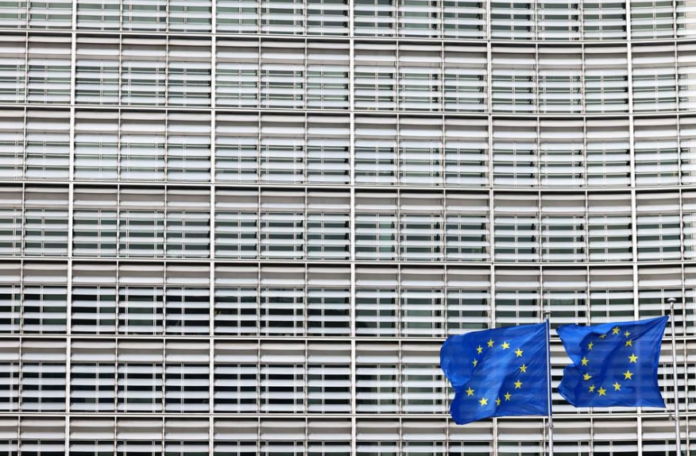The European Union will take the next step this week in its effort to recreate itself into a global power that can leverage its massive single market to rebuff coercive actions from the likes of Beijing, Moscow and even Washington, according to Bloomberg.
The EU’s executive arm will unveil a proposal on Wednesday with rules aimed at boosting its power to screen and potentially block foreign investment in sensitive industries — including from foreign-controlled companies within the bloc — as well as considering the creation of a fund to increase the development of technologies that can serve both military and civil purposes, according to a draft of the plan seen by Bloomberg.
The Covid pandemic and Russia’s war against Ukraine exposed the EU’s over-reliance on supplies from other nations, as well as trade vulnerabilities with partners that don’t share the bloc’s values. That’s focused attention on the need to defend the EU’s economic security, both to safeguard the supply of imported technology and to make sure that competitors can’t gain control of Europe’s strategic industries.
The new strategy seeks to address “risks to EU economic security, while ensuring that the EU remains a most attractive destination for business and investment,” according to the draft, which is still subject to change. The goal would be to strengthen the EU and member states’ ability to address “ongoing risk assessments related to supply chains, technologies, infrastructures and economic coercion.”
European Commission President Ursula von der Leyen warned last week of “the greatest risk to the global order in the post-war era.”
Critical technologies identified by the EU include advanced semiconductors, artificial intelligence, quantum technologies and biotechnologies. But the commission won’t decide until February whether further action is needed to boost technology security and mitigate risks based on the conclusions of the risk assessments on these areas that run jointly with member states.
The economy the EU is trying to shield is in much worse shape than that of China or the US. The euro area was probably in a recession in the second half of last year and grew just 0.6% in 2023 as a whole. That compares with expansion rates above 5% for China and more than 2% in the US, Bloomberg reports.
The Commission in 2021 outlined a new trade doctrine in which assertiveness was added to the open and green mix, and it’s expanded its economic toolbox to counter so-called bullies, including China, with a new anti-coercion instrument.
Since it started buying key European companies over the past decade — including Germany robot-maker Kuka in 2016 — China’s rise has led the bloc to look for ways to strengthen its economic arsenal. Relations worsened since the EU in 2019 labeled Beijing as a systemic rival, and suspended a bilateral investment agreement amid a tit-for-tat sanction dispute over human rights.
As a result, the EU has pursued a strategy of de-risking from China instead of fully decoupling, in spite of pressure from the more aggressive stance taken by the US.
But the bloc is also competing with Washington. The two allies have failed to solve a years-long dispute over steel and aluminum tariffs, and are competing for resources and companies to accelerate the development of clean and digital technologies.
The EU remains at a disadvantage due to its high level of energy dependence and the lack of many of the critical materials needed for the green and digital transitions. The pandemic also exposed the vulnerabilities of the EU’s supply chains.
Those tensions have brought efforts to remain competitive in a hostile environment to the top of Europe’s agenda, with trade now seen as an essential tool to secure resources and supply chains, and to cement alliances.
The EU’s trade chief, Valdis Dombrovskis, said on Friday that 2024 will be a challenging year, with the war in Ukraine, soon to enter a third year, and the Middle East conflict having the potential to disrupt trade and supply chains even further.


